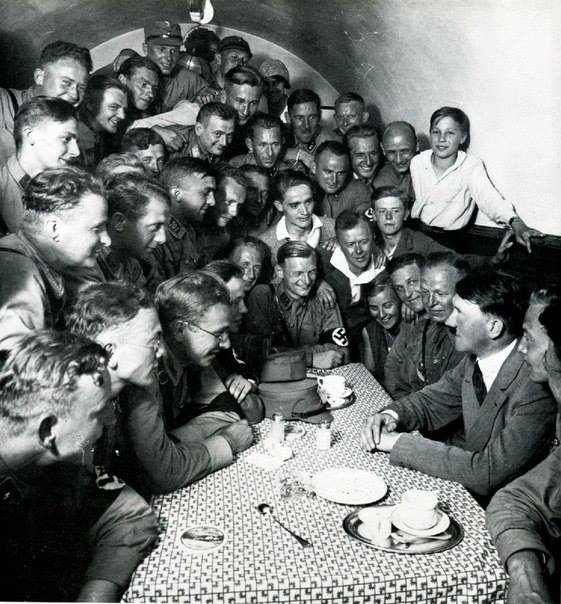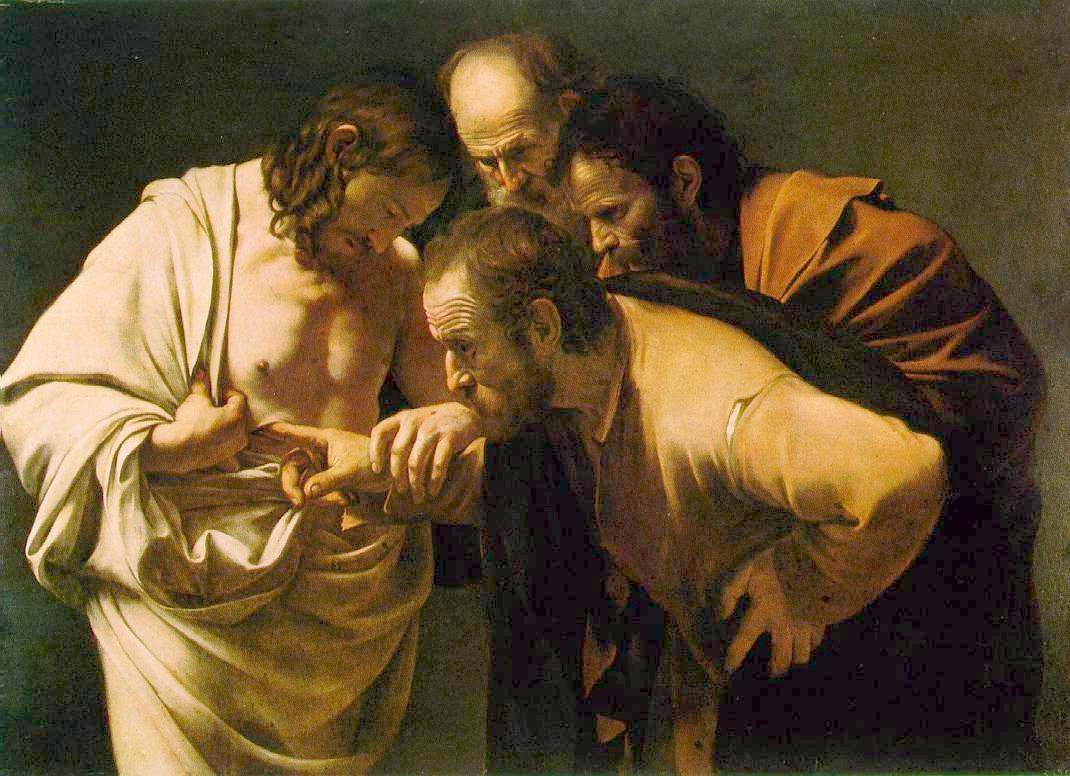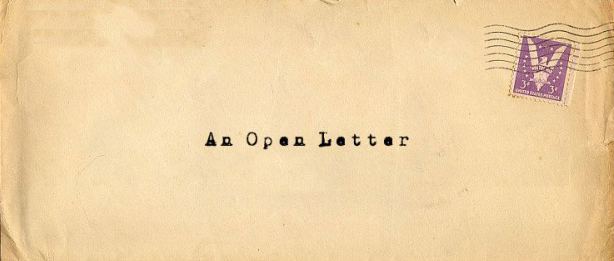To help celebrate the upcoming 70th anniversary of the end of the “Good War” and the beginning of the “Good Peace,” Tom Goodrich offers the following from his books, Hellstorm: The Death of Nazi Germany, 1944-1947, and Rape Hate: Sex & Violence in War & Peace.
And so, with the once mighty German Army now disarmed and enslaved in May, 1945, and with their leaders either dead or awaiting trial for so-called “war crimes,” the old men, women and children who remained in the dismembered Reich found themselves utterly at the mercy of the victors. Unfortunately for these survivors, never in the history of the world was mercy in shorter supply.
Soon after the Allied victory in Europe, the purge of Nazi Party members from government, business, industry, science, education, and all other walks of German life commenced. While a surprising number of Nazis were allowed—even compelled—to man their posts temporarily to enable a smooth transition, all party members, high and low, were sooner or later excised from German daily life. In theory, “de-Nazification” was a simple transplanting of Nazi officials with those of democratic, socialist or communist underpinnings. In practice, the purge became little more than a cloak for an orgy of rape, torture and death.
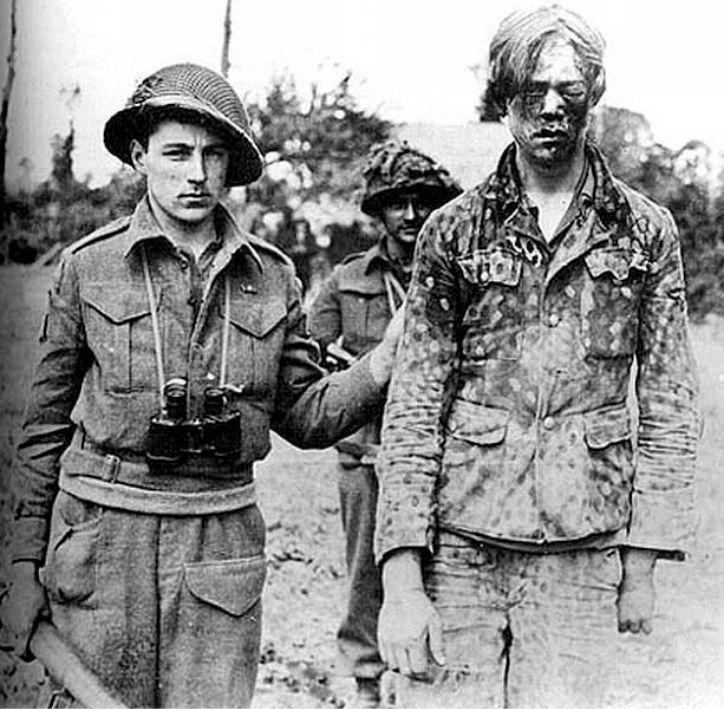
De-Nazification
Because their knowledge of the language and culture was superb, most of the intelligence officers accompanying US and British forces into the Reich were Jewish refugees who had fled Germany in the late 1930s. Although their American and English “aides” were hardly better, the fact that many of these “39ers” became interrogators, examiners and screeners, with old scores to settle, insured that Nazis—or any German, for that matter—would be shown no mercy.
One man opposed to the vengeance-minded program was George Patton. “Evidently the virus started by Morgenthau and [Bernard] Baruch of a Semitic revenge against all Germans is still working… ,” wrote the general in private. “I am frankly opposed to this war-criminal stuff. It is not cricket and it is Semitic… I can’t see how Americans can sink so low.”
Soon after occupation, all adult Germans were compelled to register at the nearest Allied headquarters and complete a lengthy questionnaire on their past activities. While many nervous citizens were detained then and there, most returned home, convinced that at long last the terrible ordeal was over. For millions, however, the trial had but begun.
“Then it started,” remembered Anna Fest, a woman who had registered with the Americans six weeks earlier.
Such a feeling of helplessness, when three or four heavily armed military police stand in front of you. You just panic. I cried terribly. My mother was completely beside herself and said, “You can’t do this. She registered just as she was supposed to.” Then she said, “If only you’d gone somewhere else and had hidden.” But I consider that senseless, because I did not feel guilty… That was the way it went with everyone, with no reason given.
Few German adults, Nazi or not, escaped the dreaded knock on the door. Far from being dangerous fascists, Freddy and Lali Horstmann were actually well-known anti-Nazis. Records Lali from the Russian Zone:
“I am sorry to bother you,” he began, “but I am simply carrying out my orders. Until when did you work for the Foreign Office?”
“Till 1933,” my husband answered.
“Then you need fear nothing,” Androff said… “We accuse you of nothing, but we want you to accompany us to the headquarters of the NKVD, the secret police, so that we can take down what you said in a protocol, and ask you a few questions about the working of the Foreign Office…”
We were stunned for a moment; then I started forward, asking if I could come along with them. “Impossible,” the interpreter smiled. My heart raced. Would Freddy answer satisfactorily? Could he stand the excitement? What sort of accommodation would they give him?
“Don’t worry, your husband has nothing to fear,” Androff continued. “He will have a heated room. Give him a blanket for the night, but quickly, we must leave…”
There was a feeling of sharp tension, putting the soldier on his guard, as though he were expecting an attack from one of us. I took first the soldier, then the interpreter, by their hands and begged them to be kind to Freddy, repeating myself in the bustle and scraping of feet that drowned my words. There was a banging of doors. A cold wind blew in. I felt Freddy kiss me. I never saw him again.
“[W]e were wakened by the sound of tires screeching, engines stopping abruptly, orders yelled, general din, and a hammering on the window shutters. Then the intruders broke through the door, and we saw Americans with rifles who stood in front of our bed and shone lights at us. None of them spoke German, but their gestures said: ‘Get dressed, come with us immediately.’ This was my fourth arrest.”
So wrote Leni Riefenstahl, a talented young woman who was perhaps the world’s greatest film-maker. Because her epic documentaries—Triumph of the Will and Olympia—seemed paeans to not only Germany, but National Socialism, and because of her close relationship with an admiring Adolf Hitler, Leni was of more than passing interest to the Allies. Though false, rumors also hinted that the attractive, sometimes-actress was also a “mistress of the devil”—that she and Hitler were lovers.
“Neither my husband nor my mother nor any of my three assistants had ever joined the Nazi Party, nor had any of us been politically active,” said the confused young woman. “No charges had ever been filed against us, yet we were at the mercy of the [Allies] and had no legal protection of any kind.”

Leni Riefenstahl
Soon after Leni’s fourth arrest, came a fifth.
The jeep raced along the autobahns until, a few hours later… I was brought to the Salzburg Prison; there an elderly prison matron rudely pushed me into the cell, kicking me so hard that I fell to the ground; then the door was locked. There were two other women in the dark, barren room, and one of them, on her knees, slid about the floor, jabbering confusedly; then she began to scream, her limbs writhing hysterically. She seemed to have lost her mind. The other woman crouched on her bunk, weeping to herself.
As Leni and others quickly discovered, the “softening up” process began soon after arrival at an Allied prison. When Ernst von Salomon, his Jewish girl friend and fellow prisoners reached an American holding pen near Munich, the men were promptly led into a room and brutally beaten by military police. With his teeth knocked out and blood spurting from his mouth, von Salomon moaned to a gum-chewing officer, “You are no gentlemen.” The remark brought only a roar of laughter from the attackers. “No, no, no!” the GIs grinned. “We are Mississippi boys!” In another room, military policemen raped the women at will while leering soldiers watched from windows.
After such savage treatment, the feelings of despair only intensified once the captives were crammed into cells.
“The people had been standing there for three days, waiting to be interrogated,” remembered a German physician ordered to treat prisoners in the Soviet Zone. “At the sight of us a pandemonium broke out which left me helpless… As far as I could gather, the usual senseless questions were being reiterated: Why were they there, and for how long? They had no water and hardly anything to eat. They wanted to be let out more often than once a day… A great many of them have dysentery so badly that they can no longer get up.”
“Young Poles made fun of us,” said a woman from her cell in the same zone. “[They] threw bricks through the windows, paperbags with sand, and skins of hares filled with excrement. We did not dare to move or offer resistance, but huddled together in the farthest corner, in order not to be hit, which could not always be avoided… [W]e were never free from torments.”
“For hours on end I rolled about on my bed, trying to forget my surroundings,” recalled Leni Riefenstahl, “but it was impossible.”
The mentally disturbed woman kept screaming—all through the night; but even worse were the yells and shrieks of men from the courtyard, men who were being beaten, screaming like animals. I subsequently found out that a company of SS men was being interrogated.
They came for me the next morning, and I was taken to a padded cell where I had to strip naked, and a woman examined every square inch of my body. Then I had to get dressed and go down to the courtyard, where many men were standing, apparently prisoners, and I was the only woman. We had to line up before an American guard who spoke German. The prisoners stood to attention, so I tried to do the same, and then an American came who spoke fluent German. He pushed a few people together, then halted at the first in our line.
“Were you in the Party?”
The prisoner hesitated for a moment, then said: Yes.” He was slugged in the face and spat blood.
The American went on to the next in line.
“Were you in the Party?”
The man hesitated.
“Yes or no?”
“Yes.”
And he too got punched so hard in the face that the blood ran out of his mouth. However, like the first man, he didn’t dare resist. They didn’t even instinctively raise their hands to protect themselves. They did nothing. They put up with the blows like dogs.
The next man was asked: “Were you in the Party?”
Silence.
“Well?”
“No,” he yelled, so no punch. From then on nobody admitted that he had been in the Party and I was not even asked.
As the above case illustrated, there often was no rhyme or reason to the examinations; all seemed designed to force from the victim what the inquisitor wanted to hear, whether true or false. Additionally, most such “interrogations” were structured to inflict as much pain and suffering as possible. Explained one prisoner:
The purpose of these interrogations is not to worm out of the people what they knew—which would be uninteresting anyway—but to extort from them special statements. The methods resorted to are extremely primitive; people are beaten up until they confess to having been members of the Nazi Party… The authorities simply assume that, basically, everybody has belonged to the Party. Many people die during and after these interrogations, while others, who admit at once their party membership, are treated more leniently.
“A young commissar, who was a great hater of the Germans, cross-examined me…,” said Gertrude Schulz. “When he put the question: ‘Frauenwerk [Women’s Labor Service]?’ I answered in the negative. Thereupon he became so enraged, that he beat me with a stick, until I was black and blue. I received about 15 blows… on my left upper arm, on my back and on my thigh. I collapsed and, as in the case of the first cross-examination, I had to sign the questionnaire.”
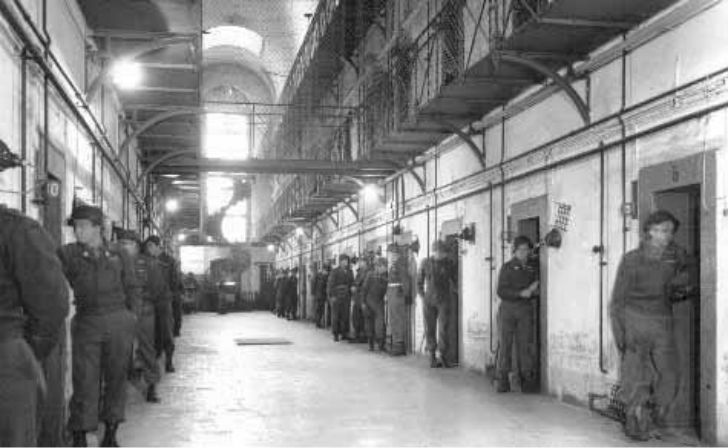
American torture pen
“Both officers who took our testimony were former German Jews,” reminisced a member of the women’s SS, Anna Fest. While vicious dogs snarled nearby, one of the officers screamed questions and accusations at Anna. If the answers were not those desired, “he kicked me in the back and the other hit me.”
They kept saying we must have been armed, have had pistols or so. But we had no weapons, none of us… I had no pistol. I couldn’t say, just so they’d leave me in peace, yes, we had pistols. The same thing would happen to the next person to testify… [T]he terrible thing was, the German men had to watch. That was a horrible, horrible experience… That must have been terrible for them. When I went outside, several of them stood there with tears running down their cheeks. What could they have done? They could do nothing.
Not surprisingly, with beatings, rape, torture, and death facing them, few victims failed to “confess” and most gladly inked their name to any scrap of paper shown them. Some, like Anna, tried to resist. Such recalcitrance was almost always of short duration, however. Generally, after enduring blackened eyes, broken bones, electric shock to breasts—or, in the case of men, smashed testicles—only those who died during torture failed to sign confessions.
Alone, surrounded by sadistic hate, utterly bereft of law, many victims understandably escaped by taking their own lives. Like tiny islands in a vast sea of evil, however, miracles did occur. As he limped painfully back to his prison cell, one Wehrmacht officer reflected on the insults, beatings, and tortures he had endured and contemplated suicide.
I could not see properly in the semi-darkness and missed my open cell door. A kick in the back and I was sprawling on the floor. As I raised myself I said to myself I could not, should not accept this humiliation. I sat on my bunk. I had hidden a razor blade that would serve to open my veins. Then I looked at the New Testament and found these words in the Gospel of St. John: “Without me ye can do nothing.”
Yes. You can mangle this poor body—I looked down at the running sores on my legs—but myself, my honor, God’s image that is in me, you cannot touch. This body is only a shell, not my real self. Without Him, without the Lord, my Lord, ye can do nothing. New strength seemed to rise in me.
I was pondering over what seemed to me a miracle when the heavy lock turned in the cell door. A very young American soldier came in, put his finger to his lips to warn me not to speak. “I saw it,” he said. “Here are baked potatoes.” He pulled the potatoes out of his pocket and gave them to me, and then went out, locking the door behind him.
* * *
Horrific as de-Nazification was in the British, French and, especially the American Zone, it was nothing compared to what took place in Poland, behind Soviet lines. In hundreds of concentration camps sponsored by an apparatus called the “Office of State Security,” thousands of Germans—male and female, old and young, high and low, Nazi and non–Nazi, SS, Wehrmacht, Volkssturm, Hitler Youth, all—were rounded up and imprisoned. Staffed and run by Jews, with help from Poles, Czechs, Russians, and other concentration camp survivors, the prisons were little better than torture chambers where dying was a thing to be prolonged, not hastened. While those with blond hair, blue eyes and handsome features were first to go, anyone who spoke German would do.
Moments after arrival, prisoners were made horrifyingly aware of their fate. John Sack, himself a Jew, reports on one camp run by twenty-six-year-old Shlomo Morel:
“I was at Auschwitz,” Shlomo proclaimed, lying to the Germans but, even more, to himself, psyching himself like a fighter the night of the championship, filling himself with hate for the Germans around him. “I was at Auschwitz for six long years, and I swore that if I got out, I’d pay all you Nazis back.” His eyes sent spears, but the “Nazis” sent him a look of simple bewilderment… “Now sing the Horst Wessel Song!” No one did, and Shlomo, who carried a hard rubber club, hit it against a bed like some judge’s gavel. “Sing it, I say!”
“The flags held high…,” some Germans began.
“Everyone!” Shlomo said.
“The ranks closed tight…”
“I said everyone!”
“Blond!”
Shlomo cried to the blondest, bluest-eyed person there. “I said sing!” He swung his rubber club at the man’s golden head and hit it. The man staggered back.
“Our comrades, killed by the Reds and Reactionaries…”
“Sonofabitch!” Shlomo cried, enraged that the man was defying him by not singing but staggering back. He hit him again, saying, “Sing!”
“Are marching in spirit with us…”
“Louder!”
“Clear the street for the Brown Battalions…”
“Still louder!” cried Shlomo, hitting another shouting man… “Millions of hopeful people…”
“Nazi pigs!”
“Are looking to the swastika…”
“Schweine!” Shlomo cried. He threw down his rubber club, grabbed a wooden stool, and, a leg in his fist, started beating a German’s head. Without thinking, the man raised his arms, and Shlomo, enraged that the man would try to evade his just punishment, cried, “Sonofawhore!” and slammed the stool against the man’s chest. The man dropped his arms, and Shlomo started hitting his now undefended head when snap! the leg of the stool split off, and, cursing the German birchwood, he grabbed another stool and hit the German with that. No one was singing now, but Shlomo, shouting, didn’t notice. The other guards called out, “Blond!” “Black!” “Short!” “Tall!” and as each of these terrified people came up, they wielded their clubs upon him. The brawl went on till eleven o’clock, when the sweat-drenched invaders cried, “Pigs! We will fix you up!” and left the Germans alone.
Some were quite fixed… Shlomo and his subordinates had killed them.
The next night it was more of the same… and the next night and the next and the next. Those who survived the “welcoming committees” at this and other camps were flung back into their pens.
“I was put with 30 women into a cell, which was intended to accommodate one person,” Gerlinde Winkler recalled. “The narrow space, into which we were rammed, was unbearable and our legs were all entangled together… The women, ill with dysentery, were only allowed to go out once a day, in order to relieve themselves. A bucket without a cover was pushed into the cell with the remark: ‘Here you have one, you German sows.’ The stink was insupportable, and we were not allowed to open the little window.”
“The air in the cells became dense, the smell of the excrement filled it, the heat was like in Calcutta, and the flies made the ceiling black,” wrote John Sack. “I’m choking, the Germans thought, and one even took the community razor blade and, in despair, cut his throat open with it.”
When the wretched inmates were at last pried from their hellish tombs, it was only for interrogation. Sack continues:
As many as eight interrogators, almost all Jews, stood around any one German saying, “Were you in the Nazi Party?” Sometimes a German said, “Yes,” and the boys shouted, “Du schwein! You pig!” and beat him and broke his arm, perhaps, before sending him to his cell… But usually a German said, “No,” and the boys… told him, “You’re lying. You were a Nazi.”
“No, I never was.”
“You’re lying! We know about you!”
“No, I really wasn’t—”
“Du lugst! You’re lying!” they cried, hitting the obstinate man. “You better admit it! Or you’ll get a longer sentence! Now! Were you in the Nazi Party?”
“No!” the German often said, and the boys had to beat him and beat him until he was really crying, “I was a Nazi! Yes!”
But sometimes a German wouldn’t confess. One such hard case was a fifty-year-old…
“Were you in the Party?”
“No, I wasn’t in it.”
“How many people work for you?”
“In the high season, thirty-five.”
“You must have been in the Party,” the boy deduced.
He asked for the German’s wallet, where he found a fishing license with the stamp of the German Anglers Association. Studying it, he told the German, “It’s stamped by the Party.”
“It’s not,” said the German.
He’d lost his left arm in World War I and was using his right arm to gesture with, and, to the boy, he may have seemed to be Heiling Hitler. The boy became violent. He grabbed the man’s collar, hit the man’s head against the wall, hit it against it ten times more, threw the man’s body onto the floor, and, in his boots, jumped on the man’s cringing chest as though jumping rope. A half dozen other interrogators, almost all Jews, pushed the man onto a couch, pulled off his trousers, and hit him with hard rubber clubs and hard rubber hoses full of stones. The sweat started running down the Jews’ arms, and the blood down the man’s naked legs.
“Warst du in der Partei?”
“Nein!”
“Warst du in der Partei?”
“Nein!” the German screamed—screamed, till the boys had to go to Shlomo’s kitchen for a wooden spoon and to use it to cram some rags in the German’s mouth. Then they resumed beating him… The more the man contradicted them, the more they hated him for it.
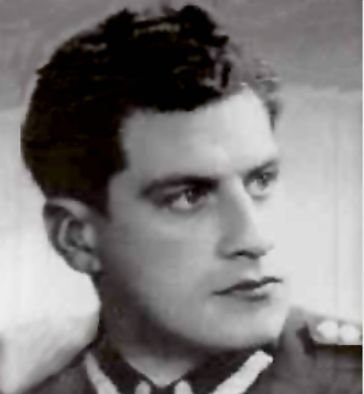
Shlomo Morel
After undergoing similar sessions on a regular basis, the victim was brought back for the eighth time.
By now, the man was half unconscious due to his many concussions, and he wasn’t thinking clearly. The boys worked on him with rubber and oak-wood clubs and said, “Do you still say you weren’t in the Party?”
“No! I didn’t say I wasn’t in the Party!”
“You didn’t?”
“No!” said the punch drunk man. “I never said it!”
“You were in the Party?”
“Yes!”
The boys stopped beating him. They practically sighed, as if their ordeal were over now. They lit up cigarettes…
“Scram,” one said to the German. The man stood up, and he had his hand on the doorknob when one of the boys impulsively hit the back of his head, and he fell to the floor, unconscious.
“Aufstehen, du Deutsches schwein. Stand up, you German pig,” the boys said, kicking him till he stood up and collapsed again. Two boys carried him to his cell and dropped him in a corner…
Of course, the boys would beat up the Germans for “Yes”es as well as “No”s. In Glatz, the Jewish commandant asked a German policeman, “Were you in the Party?”
“Of course! I was obliged to be!”
“Lie down,” the commandant said, and six weeks later the boys were still whipping the German’s feet.
Some torture sessions lacked even the pretense of an examination. Remembered Eva Reimann:
My cell door opened. The guard, who, because of the foul smell, held a handkerchief to his nose, cried, “Reimann Eva! Come!” I was led to a first-floor room.
He shouted at me, “Take off your shoes!” I took them off. “Lie down!” I lay down. He took a thick bamboo stick, and he beat the soles of my feet. I screamed, since the pain was very great… The stick whistled down on me. A blow on my mouth tore my lower lip, and my teeth started bleeding violently. He beat my feet again. The pain was unbearable…
The door opened suddenly, and, smiling obligingly, a cigarette in his mouth, in came the chief of the Office, named Sternnagel. In faultless German he asked me, “What’s wrong here? Why do you let yourself be beaten? You just have to sign this document. Or should we jam your fingers in the door, until the bones are broad…?
A man picked me up by the ankles, raised me eight inches above the floor, and let me fall. My hands were tied, and my head hit hard… I lay in a bloody puddle. Someone cried, “Stand up!” I tried to, and, with unspeakable pain, I succeeded. A man with a pistol came, held it to my left temple, and said, “Will you now confess?” I told him, “Please shoot me.” Yes, I hoped to be freed from all his tortures. I begged him, “Please pull the trigger.”
After barely surviving his “interrogation,” one fourteen-year-old was taken to the camp infirmary. “My body was green, but my legs were fire red,” the boy said. “My wounds were bound with toilet paper, and I had to change the toilet paper every day. I was in the perfect place to watch what went on… All the patients were beaten people, and they died everywhere: at their beds, in the washroom, on the toilet. At night, I had to step over the dead as if that were normal to do.”
When the supply of victims ran low, it was a simple matter to find more. John Sack:
One day, a German in pitch-black pants, the SS’s color, showed up in Lola’s prison. He’d been spotted near the city square by a Pole who’d said, “Fascist! You’re wearing black!” At that, the German had bolted off, but the Pole chased him a mile to the Church of Saints Peter and Paul, tackled him by a gold mosaic, hit him, kicked him, and took him to Lola’s prison. Some guards, all girls, then seized the incriminating evidence: the man’s black pants, pulling them off so aggressively that one of the tendons tore. The man screamed, but the girls said, “Shut up!” and they didn’t recognize that the pants were part of a boy scout uniform. The “man” was fourteen years old.
The girls decided to torture him [with]… fire. They held down the German boy, put out their cigarettes on him, and, using gasoline, set his curly black hair afire.
At the larger prison camps, Germans died by the hundreds daily.
“You pigs!” the commandant then cried, and he beat the Germans with their stools, often killing them. At dawn many days, a Jewish guard cried, “Eins! Zwei! Drei! Vier!” and marched the Germans into the woods outside their camp. “Halt! Get your shovels! Dig!” the guard cried, and, when the Germans had dug a big grave, he put a picture of Hitler in. “Now cry!” the guard said. “And sing All the Dogs Are Barking!” and all the Germans moaned,
All the dogs are barking,
All the dogs are barking,
Just the little hot-dogs,
Aren’t barking at all.
The guard then cried, “Get undressed!” and, when the Germans were naked, he beat them, poured liquid manure on them, or, catching a toad, shoved the fat thing down a German’s throat, the German soon dying.
Utterly unhinged by years of persecution, by the loss of homes and loved ones, for the camp operators, no torture, no sadism, no bestiality, seemed too monstrous to inflict on those now in their power. Some Germans were forced to crawl on all fours and eat their own excrement as well as that of others. Many were drowned in open latrines. Hundreds were herded into buildings and burned to death or sealed in caskets and buried alive.
Near Lamsdorf, German women were forced to disinter bodies from a Polish burial site. According to John Sack:
The women did, and they started to suffer nausea as the bodies, black as the stuff in a gutter, appeared. The faces were rotten, the flesh was glue, but the guards—who had often seemed psychopathic, making a German woman drink urine, drink blood, and eat a man’s excrement, inserting an oily five-mark bill in a woman’s vagina, putting a match to it—shouted at the women… “Lie down with them!” The women did, and the guards shouted, “Hug them!” “Kiss them!” “Make love with them!” and, with their rifles, pushed on the backs of the women’s heads until their eyes, noses and mouths were deep in the Polish faces’ slime. The women who clamped their lips couldn’t scream, and the women who screamed had to taste something vile. Spitting, retching, the women at last stood up, the wet tendrils still on their chins, fingers, clothes, the wet seeping into the fibers, the stink like a mist around them as they marched back to Lamsdorf. There were no showers there, and the corpses had all had typhus, apparently, and sixty-four women… died.
Not surprisingly, the mortality rate at the concentration camps was staggering and relatively few survived. At one prison of eight thousand, a mere 1,500 lived to reach home. And of those “lucky” individuals who did leave with their lives, few could any longer be called human.
When a smattering of accounts began to leak from Poland of the unspeakable crimes being committed, many in the West were stunned. “One would expect that after the horrors in Nazi concentration camps, nothing like that could ever happen again,” muttered one US senator, who then reported on beatings, torture and “brains splashed on the ceiling.”
“Is this what our soldiers died for?” echoed a Briton in the House of Commons.
Added Winston Churchill: “Enormous numbers [of Germans] are utterly unaccounted for. It is not impossible that tragedy on a prodigious scale is unfolding itself behind the Iron Curtain.”
While Churchill and others in the West were expressing shock and surprise over the sadistic slaughter taking place in the Soviet Zone, precious little was said about the “tragedy on a prodigious scale” that was transpiring in their own backyard.
* * *
Among the millions imprisoned by the Allies were thousands of Germans accused of having a direct or indirect hand in war crimes. Because the victorious powers demanded swift and severe punishment, Allied prosecutors were urged to get the most damning indictments in as little time as possible. Unfortunately for the accused, their captors seemed determined to inflict as much pain as possible in the process.
“[W]e were thrown into small cells stark naked,” Hans Schmidt later wrote. “The cells in which three or four persons were incarcerated were six and a half by ten feet in size and had no windows or ventilation.”
When we went to the lavatory we had to run through a lane of Americans who struck us with straps, brooms, cudgels, buckets, belts, and pistol holders to make us fall down. Our head, eyes, body, belly, and genitals were violently injured. A man stood inside the lavatory to beat us and spit on us. We returned to our cells through the same ordeal. The temperature in the cells was 140 Fahrenheit or more. During the first three days we were given only one cup of water and a small slice of bread. During the first days we perspired all the time, then perspiration stopped. We were kept standing chained back to back for hours. We suffered terribly from thirst, blood stagnation and mortification of the hands. From time to time water was poured on the almost red-hot radiators, filling the cells with steam, so that we could hardly breathe. During all this time the cells were in darkness, except when the American soldiers entered and switched on electric bulbs… which forced us to close our eyes.
Our thirst became more and more cruel, so that our lips cracked, our tongues were stiff, and we eventually became apathetic, or raved, or collapsed.
After enduring this torture for several days, we were given a small blanket to cover our nakedness, and driven to the courtyard outside. The uneven soil was covered with pebbles and slag and we were again beaten and finally driven back on our smashed and bleeding feet. While out of breath, burning cigarettes were pushed into our mouths, and each of us was forced to eat three or four of them. Meanwhile the American soldiers continued to hit us on eyes, head, and ears. Back in our cells we were pushed against burning radiators, so that our skin was blistered.
For thirteen days and nights we received the same treatment, tortured by heat and thirst. When we begged for water, our guards mocked us. When we fainted we were revived by being drenched with cold water. There was dirt everywhere and we were never allowed to wash, our inflamed eyes gave us terrible pain, we fainted continuously.
Every twenty minutes or so our cell doors were opened and the soldiers insulted and hit us. Whenever the doors were opened we had to stand still with our backs to the door. Two plates of food, spiced with salt, pepper, and mustard to make us thirstier, were given us daily. We ate in the dark on the floor. The thirst was the most terrible of all our tortures and we could not sleep.
In this condition I was brought to trial.
During the Nazi war crimes trials and hearings, almost any method that would obtain a “confession” was employed. Eager to implicate high-ranking German officers in the Malmedy Massacre, American investigator Harry Thon ordered Wehrmacht sergeant Willi Schafer to write out an incriminating affidavit:
Next morning Mr. Thon appeared in my cell, read my report, tore it up, swore at me and hit me. After threatening to have me killed unless I wrote what he wanted, he left. A few minutes later the door of my cell opened, a black hood encrusted with blood, was put over my head and face and I was led to another room. In view of Mr. Thon’s threat the black cap had a crushing effect on my spirits… Four men of my company… accused me, although later they admitted to having borne false testimony. Nevertheless I still refused to incriminate myself. Thereupon Mr. Thon said that if I continued to refuse this would be taken as proof of my Nazi opinions, and… my death was certain. He said I would have no chance against four witnesses, and advised me for my own good to make a statement after which I would be set free… I still refused. I told Mr. Thon that although my memory was good, I was unable to recall any of the occurrences he wished me to write about and which to the best of my knowledge had never occurred.
Mr. Thon left but returned in a little while with Lieutenant [William] Perl who abused me, and told Mr. Thon that, should I not write what was required within half an hour, I should be left to my fate. Lieutenant Perl made it clear to me that I had the alternative of writing and going free or not writing and dying. I decided for life.
Another Landser unable to resist the pressure was Joachim Hoffman:
[W]hen taken for a hearing a black hood was placed over my head. The guards who took me to my hearing often struck or kicked me. I was twice thrown down the stairs and was hurt so much that blood ran out of my mouth and nose. At the hearing, when I told the officers about the ill treatment I had suffered, they only laughed. I was beaten and the black cap pulled over my face whenever I could not answer the questions put to me, or gave answers not pleasing to the officers… I was beaten and several times kicked in the genitals.
Understandably, after several such sessions, even the strongest submitted and signed papers incriminating themselves and others.
“If you confess you will go free,” nineteen-year-old Siegfried Jaenckel was told. “[Y]ou need only to say you had an order from your superiors. But if you won’t speak you will be hung.”
Despite the mental and physical abuse, young Jaenckel held out as long as he could: “I was beaten and I heard the cries of the men being tortured in adjoining cells, and whenever I was taken for a hearing I trembled with fear… Subjected to such duress I eventually gave in, and signed the long statement dictated to me.”
Far from being isolated or extreme cases, such methods of extorting confessions were the rule rather than the exception. Wrote author Freda Utley, who learned of the horror after speaking with American jurist Edward van Roden:
Beatings and brutal kickings; knocking-out of teeth and breaking of jaws; mock trials; solitary confinement; torture with burning splinters; the use of investigators pretending to be priests; starvation; and promises of acquittal… Judge van Roden said: “All but two of the Germans in the 139 cases we investigated had been kicked in the testicles beyond repair. This was standard operating procedure with our American investigators.” He told of one German who had had lighted matchsticks forced under his fingernails by the American investigators to extort a confession, and had appeared at his trial with his fingers still bandaged from the atrocity.
In addition to testimony given under torture, those who might have spoken in defense of the accused were prevented. Moreover, hired “witnesses” were paid by the Americans to parrot the prosecution’s charges.
When criticism such as Utley’s and van Roden’s surfaced, and even as victims were being hung by the hundreds, those responsible defended their methods.
“We couldn’t have made those birds talk otherwise…,” laughed one Jewish “interrogator,” Colonel A. H. Rosenfeld. “It was a trick, and it worked like a charm.”
